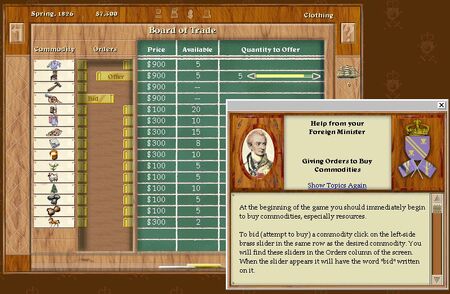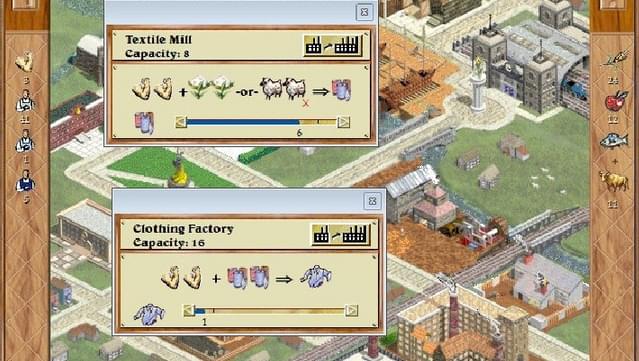X86-64 (also known as x64, x8664, AMD64 and Intel 64) is a 64-bit version of the x86 instruction set, first released in 1999.It introduced two new modes of operation, 64-bit mode and compatibility mode, along with a new 4-level paging mode. The virtual switch ignores VLAN tags in frames or packets. Essentially, the virtual LAN segment that may have been defined by another switch is not recognized. Frames and packets are filtered and delivered by their destination MAC or IP address. Any VLAN tagging that exists is ignored and remains in the frame. The best way to get a hold of me outside of school is through email. Home Design/Media 10. Anyway, this old-Mac-dog wields Tilt Brush, a common tool for 3D painting, as if he’s the protagonist in the classic children’s book Harold and the Purple Crayon, using it to create miniature.

- > >
- Imperialism
Hi Paul, Thanks for your reply. On our side, I have done the test on our side, the steps can remove it. You are welcome to post back after trying it, if it can't help you, you are welcome to post back and I will keep working on this.
Description of Imperialism Windows
Read Full DescriptionOne of the best strategy games ever made, Imperialism is the rare turn-based game that strikes a near-perfect balance between economics, diplomacy, and military action set in a fictitious 19th century world.
As in the real world, success depends on the ability to manage the economics -- you can’t drive a war machine for long without a robust economy under the hood. Different natural resources -- foodstuffs, iron, coal, timber and cotton -- are essential for fueling the empire, for creating the trade goods, and cannons necessary for survival. Extracting these resources and maximizing your production is as involving and as challenging as anything this side of Capitalism; and while that may not be everyone’s cup of tea (and the learning curve can be steep), Imperialism treats its subject with such care and detail that hard-core strategy gamers can’t help but be delighted.
Your role is as one of the world's Great Powers eager for world domination. Your goal is to build the Empire through conquest, diplomacy, and trade (which is all-important in the game, since your country does not have the resources to be self-sufficient). The world market, of course, runs on a supply and demand system: you can only buy what other countries are willing to sell you. This makes diplomacy important--you can use treaties, trade subsidies, and outright bribery to become the favored trade partner of suppliers of important resources. Building a strong economy, with a steady supply of resources and a steady output of finished goods and troops, is the key to world domination.
Although it looks similar to Civilization, Imperialism is a very different game that relies much more on a (very elegant) system of interdependencies of the various elements. Perhaps the best way to illustrate this is by means of an example. Similar to the Settler unit in Civilization, you need non-combat units to improve productivity of your nation. These include Miner, Forester, Prospector, and so on. In order to create one of these units, you need a highly trained worker as well as a supply of paper. But trained and expert workers are at a premium, i.e. you must first educate them, which costs money and paper. To get paper you need wood, which only comes from forests. And you need a certain number of basic necessities, e.g. grain and livestock, before you can even recruit and untrained worker who can be further educated to 'trained' and 'expert' levels. Military units, logically, require more advanced products such as steel and armaments.
This intricate interdependencies of the various components in your industrial development machine mean that an important key to success in the game is to develop a constant flow of natural resources -- timber, coal, cotton and iron -- with which to grow your economy and build your defences. But inevitably your productivity will outstrip the resources of your own homeland, at which point you will be in danger of invasions from aggressive rivals. The scarcity of resources is thus a powerful impetus for aggressive expansion, trade, and diplomacy, which is what the middle and end game sessions of Imperialism is all about.
The diplomacy model is elegant and well-implemented. You can subsidize trade with other nations or enact boycotts against your rivals. Monetary economic aid, subsidies, embassies, and pacts enhance your diplomatic clout with other nations, who may voluntarily join your empire once they are sufficiently impressed. The international economy is also nicely handled. You can buy and sell all the natural resources, refined products, and finished goods available, including armaments. The amount of trade you can conduct is determined by the size of your merchant fleet, and to expand your merchant fleet, you must produce sailcloth and timber. To produce adequate amounts of cotton and timber, you must have a growing economy. As mentioned above, everything in the game neatly ties into everything else.
Although it sounds complex, micromanagement is kept at a minimum in the game by an elegant system: only a few finished products (clothes, tools, and furniture) represent all commerce. All production is handled on one central screen which represents your capital. So instead of city-by-city clicking every turn, an empire-wide transport network of rails and ports moves the goods into your capital, allowing you to allocate production in one fell swoop. It’s a great system, but the drawback is that newly-created military units must all originate in your capital city and march arduously to the front lines.
If there is any weakness in the game, it probably lies in combat, although arguably that is never the game's focus. Naval combat is woefully inadequate and simplistic, especially considering that ground combat utilizes an elegant (although optional) tactical combat engine that require chess-like tactics similar to Conquest of the New World. It is turn based with each turn equalling a season so do the math. Another weakness in the game is the simplistic technology tree-- nothing like the elaborate system of Civilization. But then again, this is not so much a weakness when taking into account the fact that the game focuses on a specific period in history, and in a fictional 19th century world at that.
My biggest gripe is that the game can be over all too abruptly. Imperialism is won by the vote of a council that meets every ten years and votes on the world leader. This means that you could win the game just as your empire starts to get interesting and you are plotting a devious plan to eliminate other nations. This could happen long before the 400-turn limit is reached, and the game wont' let you continue after this winning event. This is a minor nitpick, but it is worth noting that you should alienate at least a few nations for as long as possible if you want to play a longer game ;)

Overall, Imperialism is a wonderful turn-based strategy game that is unique in its elegant system of interdependent, interlocking elements. Although Imperialism II expands the concept and adds many new elements, this original game is arguably a more elegant and playable masterpiece. Never will a historical strategy game be this good until Europa Universalis. A must-have, without a doubt.
Review By HOTUD
External links
Captures and Snapshots
Screenshots from MobyGames.com
Comments and reviews
KVPMD2021-01-130 point
This game is til today one of the best. Only coming near (and mostly bein better) in this time period is EU4. Biggest problem: The AI. Seconds: Diplomacy is a bit easy from todays standard.
Most important features:
- Incredible interconnection of ressources including goods, influence, transporting and trade capacity, Military, Foods and workforce. Never seen better. Not even close.
- Immersive build up of an imperial power increasing litteraly every factor by 10-100 times during the 100 years
- Balance of military vs trade / diplomacy expansion
- Fluid change from scarce to overflow of ressources
This feels so good. I would love to see a remake repairing the AI, Diplomacy and getting us decent grafics.
sus2019-03-300 point
Hello ! It seams to me the game in available on Gog only for PC, not for Mac...
Write a comment
Share your gamer memories, give useful links or comment anything you'd like. This game is no longer abandonware, we won't put it back online.
Buy Imperialism
Imperialism is available for a small price on the following websites, and is no longer abandonware. GoG.com provides the best release and does not include DRM, please buy from them! You can read our online store guide .
04.imperialismmr. Mac's Virtual Existence Key

Game Extras and Resources
Some of these file may not be included in the game stores. For Imperialism, we have the following files:
Other Releases

04.imperialismmr. Mac's Virtual Existence Reality
Imperialism was also released on the following systems:
Mac
- Year:1997
- Publisher:Strategic Simulations, Inc.
- Developer:Frog City Software, Inc.
Similar games
Fellow retro gamers also downloaded these games:
